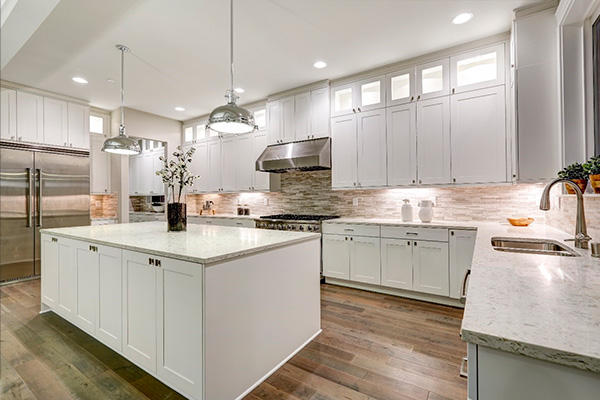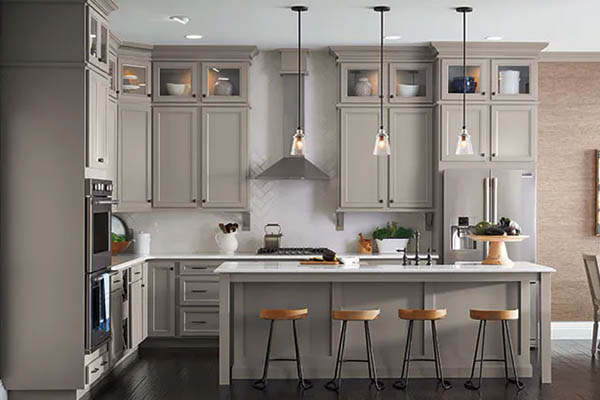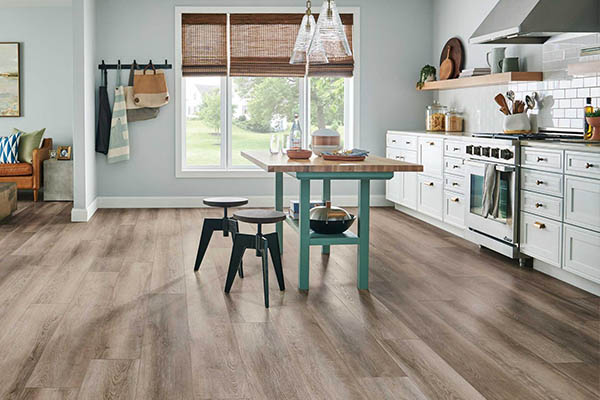LIMESTONE countertops pros and cons

General information
For thousands of years, Limestone has been utilized as a robust construction material. It is primarily made up of calcite and aragonite, both different crystal forms of calcium carbonate. One of the best showcases of its enduring nature is the Great Pyramid of Giza, built from limestone over 4500 years ago.
Nowadays, limestone is broadly used as a reliable surface material for walls and floors, as well as for bathroom and kitchen countertops.
As with any other material, marble surface has pros and cons, and the application area may affect its longevity.
Pros of Limestone countertops
- Look: Various shades of white, beige, grey, and tan with particles of white calcium, mineral deposits, shells, and fossils give Limestone its elegant appearance. Due to its unrepeated fossilization patterns, which differ from stone to stone, every slab is unique.
- Heat resistance: Limestone is naturally a heat-resistant material; the placement of hot objects will not be a problem; however, placing hot cookware, like a red-heated pan, directly on the surface may cause a change of color in the place of contact.
- Price: One of the points that makes limestone a popular option is its price. Limestone countertops are usually priced below other stones like granite and marble.
Cons of Limestone countertops
- Maintenance: Limestone is an exceedingly porous material that quickly absorbs liquids. Simple beet or tomato juice dribble, drop of mustard, and red wine spill, can soon turn into a hideous stain. As a preventive measure, regular resealing is highly recommended.
- Durability: Due to its porous nature, Limestone is considered a “soft” stone. Unlike Quartz or Granite, which are nearly indestructible, limestone can be relatively easily scratched if used intensively. However, if handled with care, Limestone can stand the test of time and go through decades of service with proper maintenance. Fine steel wool can be used to buff out minor scratches.
- Installation: Limestone surfaces are not recommended for do-it-yourself installation. Special tools and skills might be required for professional installation due to the high weight and “softness” of the material.
Conclusion
Limestone is a beautiful material that can upgrade any interior and, at the same time, last for a long time if used correctly and maintained well. Professionals with vast experience suggest that Limestone is a good surface material for locations with less usage as bathrooms, fireplace surrounds, and walls, and is less recommended for kitchen countertops.



